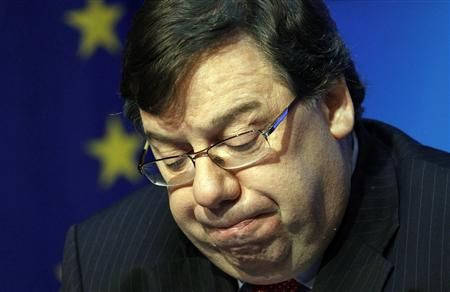Marginal GDP growth brings little cheer to Ireland

Ireland's gross domestic product recorded a marginal rise of 0.5 percent in the third quarter on a sequential basis, but the small improvement in growth will do little to alter analysts' view that the country still faces an uphill task managing its debt.
The small rise in Irish GDP in [the third quarter] is clearly encouraging, but it does not alter our underlying view that the Government faces an enormous task to reduce public debt to a sustainable level without defaulting, Ben May, European Economist at Capital Economics, said in a note.
The 0.5 percent quarterly rise in GDP, which was announced by the Central Statistics Office on Thursday, partially reversed second quarter's upwardly revised 1 percent fall, pushing the annual growth rate up from –1.8 percent to -0.5 percent.
The marginal increase was powered by a 3.6 percent increase in exports and a boost from inventories. May suggested that the rise in exports provides the hope that the external sector may help Ireland stage a sustained recovery next year.
However he says that the boost gained from the inventories will certainly fade away once firms' stocks return to more normal levels, while another point of worry was the weakness in domestic spending.
The 0.5 percent drop in household spending was the sharpest quarterly fall since the fourth quarter of the last year, May points out. Meanwhile, investment plunged by 18.1 percent, more than reversing the previous quarter’s rise.
Worryingly, given that the worst of the recent financial market troubles took place in the final quarter of the year, there is clearly a risk that household spending and investment suffer further sharp falls in Q4. In all, then, one or two encouraging signs here, but nothing to alter our view that Ireland looks set for another very tough year in 2011.
A forecast by ratings firm Ernst and Young said this week Ireland's GDP will drop by 2.3 percent next year, whereas according to government prediction the economy would grow 1.75 percent in 2011.
The ratings firm said the Irish economy will not rebound until 2013, and that negative growth rates would make it impossible to cut the budget gap to 3 percent.
© Copyright IBTimes 2025. All rights reserved.





















